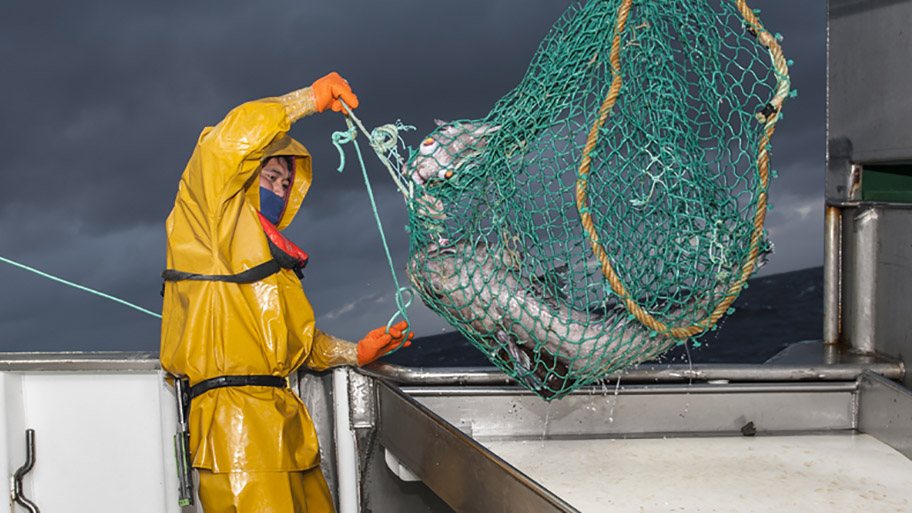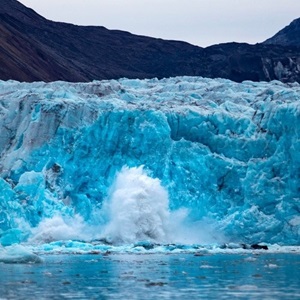Illegal and destructive fishing pose a significant global threat to sustainability, marine biodiversity, ocean ecosystems, and the livelihoods of those who fish legitimately.
What is illegal, unreported, and unregulated (IUU) fishing?
IUU fishing is that which takes place outside of the regulations set by governments and fishing management bodies. IUU fishing is worth up to an estimated £19.3 billion (US$ 23.5 billion) annually.Illegal fishing typically refers to fishing that breaks local or international law, as set by a fishing management body. It can include fishing without a license or permit, fishing in a closed-off area, fishing with prohibited gear, fishing above a quota, or the fishing of prohibited species.
Unreported fishing refers to fishing activity that is not reported to the relevant authorities or is misreported and contravenes local or international law.
Unregulated fishing frequently overlaps with illegal, unreported, and overfishing. It refers to fishing vessels operating without being subject to any regulations. This could be fishing in areas where conservation or management measures have not been put in place, or when vessels from nations who have not joined the relevant management organization fish within its waters without following the rules.
Not all unregulated or unreported fishing is criminal, it could be a subsistence fisher in a developing region or accidental misreporting of a fish species.
What is destructive fishing?
Destructive fishing practices include the use of cyanide or explosives to catch fish. Cyanide is used to stun fish making them easier to catch. Explosives like dynamite are used to kill fish so they float to the surface and can easily be scooped up by nets. These destructive fishing practices can result in irreversible damage to habitats and ecosystems.What is sustainable fishing?
How does the MSC Program address IUU and destructive fishing?
Destructive fishing methods are not allowed within the MSC program and no fishery using them is eligible for certification to the MSC Fisheries Standard for sustainability.
The MSC program requires fishers to have strong management systems in place that detect whether local, national, or international laws are being broken.
Fisheries that are independently certified to the Standard, work to a rigorous framework that ensures the stocks they fish are not under serious pressure from overfishing or IUU activities. Certified fisheries must also undergo regular audits to ensure they are complying with all aspects of the Standard.
The Standard helps fishers improve the quality of data they collect and strengthen the monitoring, control, and surveillance of the fishery’s operations.
Research suggests that MSC certification and data obtained from the process are important tools for fishery managers and governments in combatting IUU fishing.
Fishery assessment reports by independent teams are publicly available so seafood buyers can see for themselves what measures are taken by fisheries to address IUU fishing and comply with the Standard.

What are legitimate fishers doing about IUU?
There are many examples of how fisheries are driving out IUU fishing, such as the Patagonian toothfish (Chilean seabass) fishery.For many years, uncontrolled IUU fishing was contributing to the decline of this high value species. Decisive action by six major toothfish fisheries has virtually eliminated IUU fishing in the Southern Ocean. Today, stocks have recovered and are healthy, and MSC data shows over 50% of the world’s catch is certified sustainable against the MSC Fisheries Standard.
International collaborations continue to improve the sustainability of these fisheries, with the SARPC toothfish fishery now conducting research to ensure skates that interact with the fishery are unharmed when returned to the ocean.
How MSC certified fisheries are improving
How does the MSC help prevent IUU seafood entering the supply chain?
Between the ocean and your plate, fish and seafood products may pass through many stages. The MSC has a Chain of Custody (CoC) Standard with requirements to help prevent IUU seafood entering the legal marketplace. The requirements help identify and separate certified from non-certified seafood in the supply chain.When you see a product carrying the MSC blue label it means that every company within that supply chain must have a valid Chain of Custody certificate and the goods they supply come from a certified sustainable source and have not been fished using IUU methods.
To achieve and maintain CoC certification, a business must be regularly assessed against the Standard by an independent certification body. These certificates are valid for three years and businesses are subject to surveillance audits to check they are meeting the requirements.







